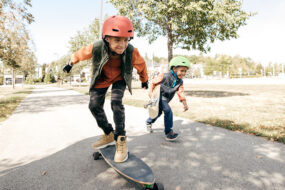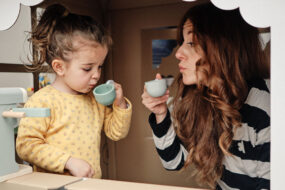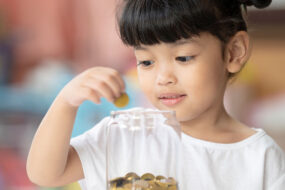To dob or not to dob: What we should teach our kids?
Guilty of a little mixed messaging when it comes to kids and dobbing? The solution is simpler than it might seem.
Written by Dilvin Yasa
Walking home from school with my nine-year-old recently, the discussion turned to the importance of telling the teacher about a classmate’s bullying ways.
“So should I dob them in as soon as they do it?” she asked.
“Yes, absolutely,” I responded.
“The teacher needs to be across it otherwise (the perpetrator) gets away with it.”
So far, so good, I thought – until my whole case for dobbing came undone 20 short minutes later after I admonished her for coming to me about less-than-desirable behaviour from her older sister.
My younger daughter was confused – and rightly so.
“But you told me to dob,” she shrieked.
- Child’s play: How to deal with fussy eaters
Are we a nation of dobbers?
There’s an idea that Aussies are largely against snitching: “No one likes a dobber”.
But UNSW Law and Justice Associate Professor Catherine Bond’s research shows Crime Stoppers data – essentially, dobbing in our neighbours – actually increased dramatically during the Covid-19 pandemic.
In 2019, there were about 313,000 reports made to Crime Stoppers, but by 2021 this figure had spiked to about 584,000.
UNSW Arts, Design and Architecture School of Social Sciences sociologist Associate Professor Melanie White says it isn’t so much that we love to get others in trouble, but that our appetite for dobbing is more a question of context and our sense of loyalty.
“When we perceive potential harm to our wellbeing, or to the wellbeing of those close to us, the question of whether to report wrongdoing or not comes into place,” Prof White says.
With so much grey area to cover, how then does a parent even begin to navigate the nuances of dobbing with their children?
As you might imagine, a little flexible thinking is required.
- Shift approach: Why rewarding children might be holding them back
What every parent needs to know about dobbing
“Dob on your neighbours but don’t dob on your siblings.”
“Say something if you see something but remember that nobody likes a dobber.”
When you consider these statements, it’s easy to see how we could be sending our children mixed messages.
Clinical psychologist Anissa Mouti says this is why rather than focusing on the “Should we? Shouldn’t we” of dobbing, we should take some time to think about how we define it to kids and the purpose of the action.
“We should be teaching our kids about what they want to gain from dobbing,” Anissa says.
“Are they dobbing because they want to get even, don’t like (the other person), or is it because of safety reasons? Context is important.
“Dobbing gives the impression that you want the other person to get in trouble rather than sharing with another person that you saw someone doing something and having a conversation about if it’s risky and/or unsafe and you need to speak up.
“The most important tool for parents is to redefine what the term actually means.”
The Quirky Kids Clinic principal child psychologist Dr Kimberley O’Brien agrees that furnishing kids with a clear set of dobbing guidelines is important for future context, but that kids also need to learn to be self-sufficient.
“Solving their problems for them isn’t necessarily the best approach,” Dr O’Brien says.
“This is an opportunity for kids to feel empowered, learn to work as part of a team and function as a member of the community.”
The most important tool for parents is to redefine what (dobbing) actually means.
Why kids need to know dobbing can be OK
Provided kids understand the rules of what can pass and which actions require a whistleblower, we need to be able to trust that they can make good decisions and solve tricky situations themselves.
“Nothing is ever black and white, so we can be there to fill in the gaps as they grow older and learn to trust what’s OK and what needs to be actioned,” Dr O’Brien says.
“A great way of doing that is by having discussions where you look at different options for various scenarios and decide what would best fit that situation.”
The nuances of dobbing can be even trickier for teens
“Teens may be isolated – or bullied – by peers if they are perceived to be a dobber but there are safety situations (drinking, drug taking or violated consent, for example) where you need to tell someone, so we need to encourage speaking up when required,” Anissa says.
“For younger kids in primary, you can easily say ‘go and get a teacher’ but with this age group, you need to teach them the importance of speaking up in a more subtle and strategic way,” Dr O’Brien says.
“As they become more independent, it’s up to parents – and their teachers – to let them know which avenues they can take when everyday resources aren’t available to them.”
So, the next time your child comes to you with a problem, stop and think before giving them advice on their next move.
It could change the way they view dobbing – and its place – for good.
- Teen self-harm: What to look for and how to help





